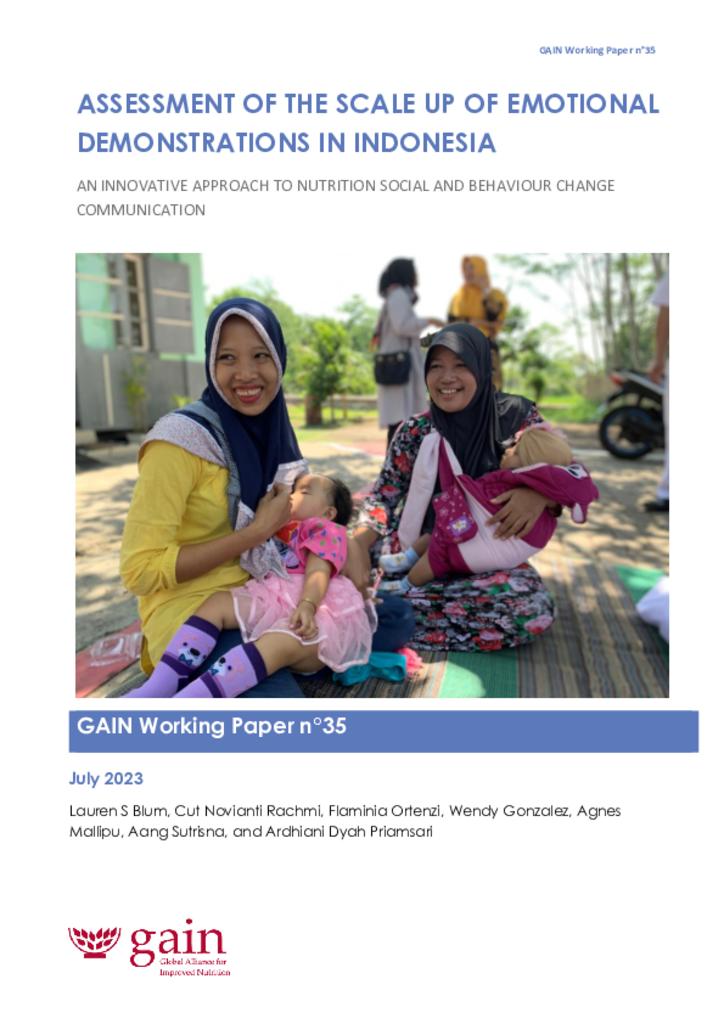Currently, almost 32% of children under five in Indonesia are stunted. To support national stunting-reduction efforts, in 2014 the Global Alliance for Improved Nutrition (GAIN) launched the ‘Baduta’ programme (Baduta 1) to improve child growth outcomes during the first 1,000 days. The programme’s behaviour change communication component was centred around emotional demonstrations (‘emo demos’). A 2017 evaluation of the programme found promising results, which encouraged various district governments to implement and scale up emo demos with GAIN’s support. The objective of this paper is to describe the initial emo demo scaling-up phase (Baduta 2), reflecting on the challenges faced and ensuing lessons learned.
Overall, when well implemented, emo demos were engaging and appreciated by both participants and facilitators. A major strength of Baduta 2 was the extensive advocacy and outreach activities led by GAIN in collaboration with partners, which resulted in large buy-in from the government, leading to the widespread adoption of emo demos across Indonesia. However, several implementation challenges were faced, the most significant ones being insufficient allocation of resources for scale up and limited capacity of local community health volunteers (‘cadres’) to lead emo demo sessions effectively.
